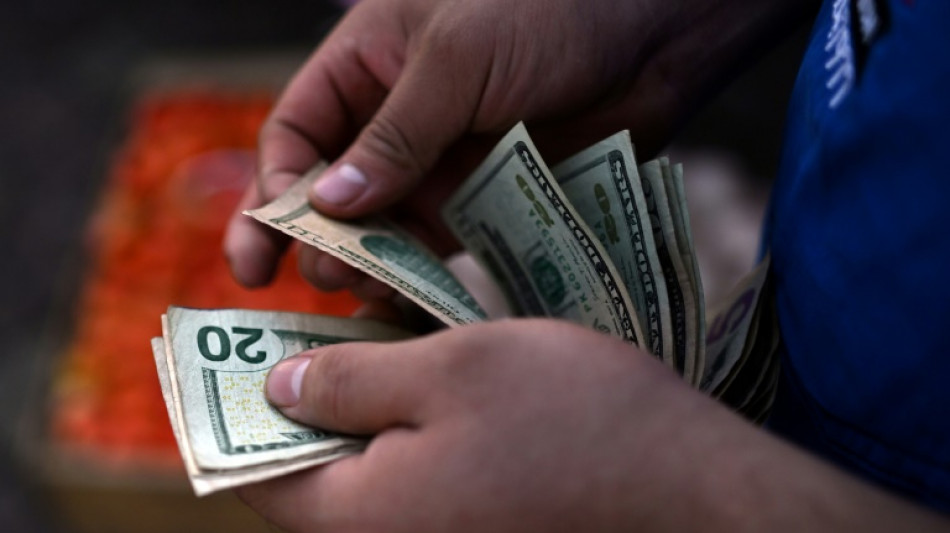
-
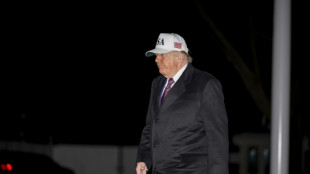 Trump has options on Iran, but first must define goal
Trump has options on Iran, but first must define goal
-
Paris FC's Ikone stuns PSG to knock out former club from French Cup

-
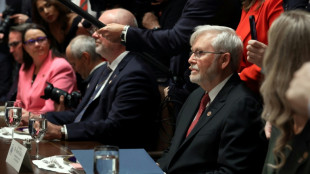 Australia's ambassador to US leaving post, marked by Trump rift
Australia's ambassador to US leaving post, marked by Trump rift
-
Slot angered by 'weird' Szoboszlai error in Liverpool FA Cup win

-
 Szoboszlai plays hero and villain in Liverpool's FA Cup win
Szoboszlai plays hero and villain in Liverpool's FA Cup win
-
Hawaii's Kilauea volcano puts on spectacular lava display
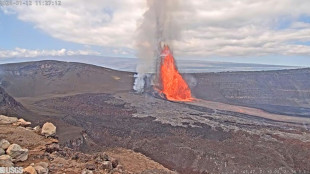
-
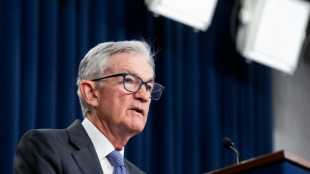 US stocks at records despite early losses on Fed independence angst
US stocks at records despite early losses on Fed independence angst
-
Koepka rejoins PGA Tour under new rules for LIV players

-
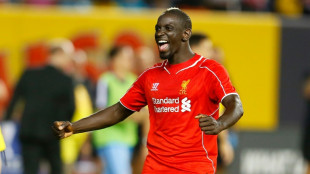 Ex-France, Liverpool defender Sakho announces retirement
Ex-France, Liverpool defender Sakho announces retirement
-
Jerome Powell: The careful Fed chair standing firm against Trump
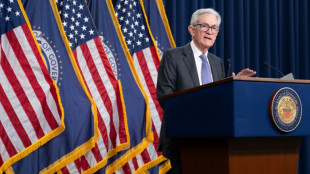
-
 France scrum-half Le Garrec likely to miss start of Six Nations
France scrum-half Le Garrec likely to miss start of Six Nations
-
AI helps fuel new era of medical self-testing

-
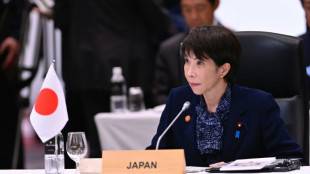 Leaders of Japan and South Korea meet as China flexes muscles
Leaders of Japan and South Korea meet as China flexes muscles
-
Trump sets meeting with Venezuelan opposition leader, Caracas under pressure
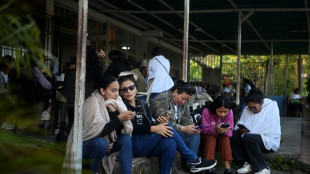
-
 Australia captain Alyssa Healy to retire from cricket
Australia captain Alyssa Healy to retire from cricket
-
US 'screwed' if Supreme Court rules against tariffs: Trump

-
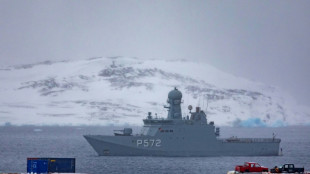 NATO, Greenland vow to boost Arctic security after Trump threats
NATO, Greenland vow to boost Arctic security after Trump threats
-
Israel to take part in first Eurovision semi-final on May 12

-
 How Alonso's dream Real Madrid return crumbled so quickly
How Alonso's dream Real Madrid return crumbled so quickly
-
Ex-Fed chiefs, lawmakers slam US probe into Jerome Powell

-
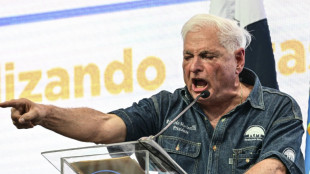 Former Panama leader on trial over mega Latin America corruption scandal
Former Panama leader on trial over mega Latin America corruption scandal
-
Trump keeping Iran air strikes on the table: White House
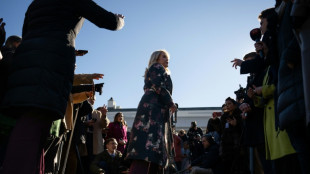
-
 Paramount sues in hostile bid to buy Warner Bros Discover
Paramount sues in hostile bid to buy Warner Bros Discover
-
Ugandan opposition leader Bobi Wine warns of protests if polls rigged
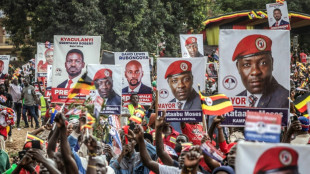
-
 Airbus delivers more planes in 2025
Airbus delivers more planes in 2025
-
Alonso leaves Real Madrid, Arbeloa appointed as coach

-
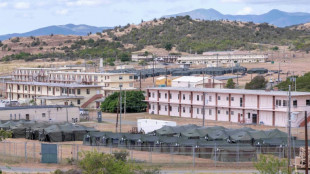 UK pays 'substantial' compensation to Guantanamo inmate: lawyer
UK pays 'substantial' compensation to Guantanamo inmate: lawyer
-
Iran protest toll mounts as government stages mass rallies
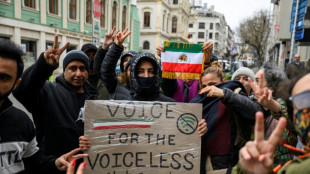
-
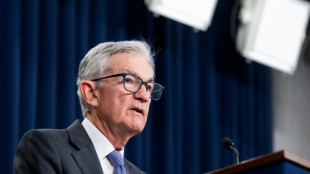 Gold hits record high, dollar slides as US targets Fed
Gold hits record high, dollar slides as US targets Fed
-
Cuba denies being in talks with Trump on potential deal
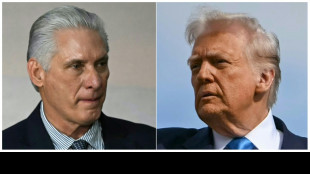
-
 Scientists reveal what drives homosexual behaviour in primates
Scientists reveal what drives homosexual behaviour in primates
-
Venezuela releases more political prisoners as pressure builds

-
 15,000 NY nurses stage largest-ever strike over conditions
15,000 NY nurses stage largest-ever strike over conditions
-
Rosenior plots long Chelsea stay as Arsenal loom

-
 Zuckerberg names banker, ex-Trump advisor as Meta president
Zuckerberg names banker, ex-Trump advisor as Meta president
-
Reza Pahlavi: Iran's ex-crown prince dreaming of homecoming

-
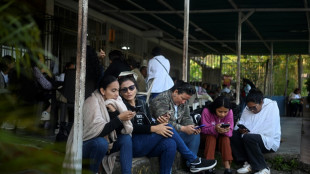 Venezuela releases more political prisoners
Venezuela releases more political prisoners
-
Kenya's NY marathon champ Albert Korir gets drug suspension

-
 US prosecutors open probe of Fed chief, escalating Trump-Powell clash
US prosecutors open probe of Fed chief, escalating Trump-Powell clash
-
Russian captain in fiery North Sea crash faces UK trial

-
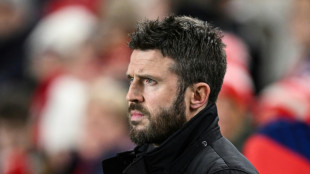 Carrick is frontrunner for interim Man Utd job: reports
Carrick is frontrunner for interim Man Utd job: reports
-
Iran government stages mass rallies as alarm grows over protest toll
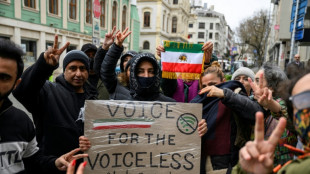
-
 Variawa leads South African charge over Dakar dunes
Variawa leads South African charge over Dakar dunes
-
Swiss inferno bar owner detained for three months

-
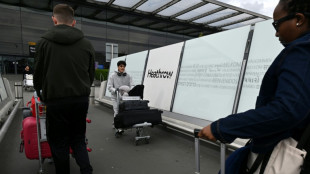 Heathrow airport sees record high annual passenger numbers
Heathrow airport sees record high annual passenger numbers
-
Georgia jails ex-PM for five years amid ruling party oustings
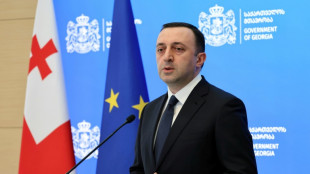
-
 Kyiv buries medic killed in Russian drone strike
Kyiv buries medic killed in Russian drone strike
-
Israel revokes French researcher's travel permit

-
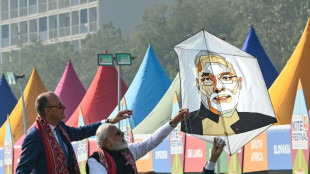 India and Germany seek to boost defence industry ties
India and Germany seek to boost defence industry ties
-
French coach and football pundit Rolland Courbis dies at 72


Climate finance billions at stake at COP29
Rich nations will be under pressure at this month's UN COP29 conference to substantially increase the amount of money they give to poorer countries for climate action.
But there is deep disagreement over how much is needed, who should pay and what should be covered, ensuring that "climate finance" will top the agenda at COP29 in Baku.
- What is climate finance? -
It is the buzzword in this year's negotiations, which run from November 11 to 22, but there is not one agreed definition of climate finance.
In general terms, it is money spent in a manner "consistent with a pathway towards low greenhouse gas emissions and climate-resilient development", as per phrasing used in the Paris Agreement.
That includes government or private money for clean energy like solar and wind, technology like electric vehicles, or adaptation measures like dykes to hold back rising seas.
But could a subsidy for a new water-efficient hotel, for example, be counted? It is not something the COP summits have addressed directly.
At the annual UN negotiations, climate finance has come to refer to the difficulties the developing world faces getting the money it needs to prepare for global warming.
- Who pays? -
Under a 1992 UN accord, a handful of rich countries most responsible for global warming were obligated to provide finance.
In 2009, the United States, the European Union, Japan, Britain, Canada, Switzerland, Norway, Iceland, New Zealand and Australia agreed to pay $100 billion per year by 2020.
They only achieved this for the first time in 2022. The delay eroded trust and fuelled accusations that rich countries were shirking their responsibility.
At COP29, nearly 200 nations are expected to agree on a new finance goal beyond 2025.
India has called for $1 trillion a year and some other proposals go higher, but countries on the hook want other major economies to chip in.
They argue times have changed and the big industrialised nations of the early 1990s represent just 30 percent of historic greenhouse gas emissions today.
In particular, there is a push for China -- the world's largest polluter today -- and the oil-rich Gulf countries to pay. They do not accept this proposal.
- What's being negotiated? -
Experts commissioned by the UN estimate that developing countries, excluding China, will need $2.4 trillion per year by 2030.
But the line between climate finance, foreign aid and private capital is often blurred and campaigners are pushing for clearer terms that specify where money comes from, and in what form.
In an October letter to governments, dozens of activist, environment and scientific groups called on rich nations to pay developing countries $1 trillion a year in three clear categories.
Some $300 billion would be government money for reducing planet-heating emissions, $300 billion for adaptation measures and $400 billion for disaster relief known as "loss and damage" funds.
The signatories said all the money should be grants, seeking to redress the provision of loans as climate finance that poorer countries say compounds their debt woes.
Developed countries do not want money for "loss and damage" included under any new climate finance pact reached at COP29.
- Where will they find the money? -
Today, most climate finance aid goes through development banks or funds co-managed with the countries concerned, such as the Green Climate Fund and the Global Environment Facility.
Campaigners are very critical of the $100 billion pledge because two-thirds of the money was given as loans, not grants.
Even revised upwards, it is likely any new pledge from governments will fall well short of what is needed.
But this commitment is viewed as highly symbolic nonetheless, and crucial to unlocking other sources of money, namely private capital.
Financial diplomacy also plays out at the World Bank, the International Monetary Fund and the G20, where this year's host Brazil wants to craft a global tax on billionaires.
The idea of new global taxes, for example on aviation or maritime transport, is also supported by France, Kenya and Barbados, with the backing of UN chief Antonio Guterres.
Redirecting fossil fuel subsidies towards clean energy or wiping the debt of poor countries in exchange for climate investments are also among the options.
COP29 host Azerbaijan, meanwhile, has asked fossil fuel producers to contribute to a new fund that would channel money to developing countries.
N.AbuHussein--SF-PST



